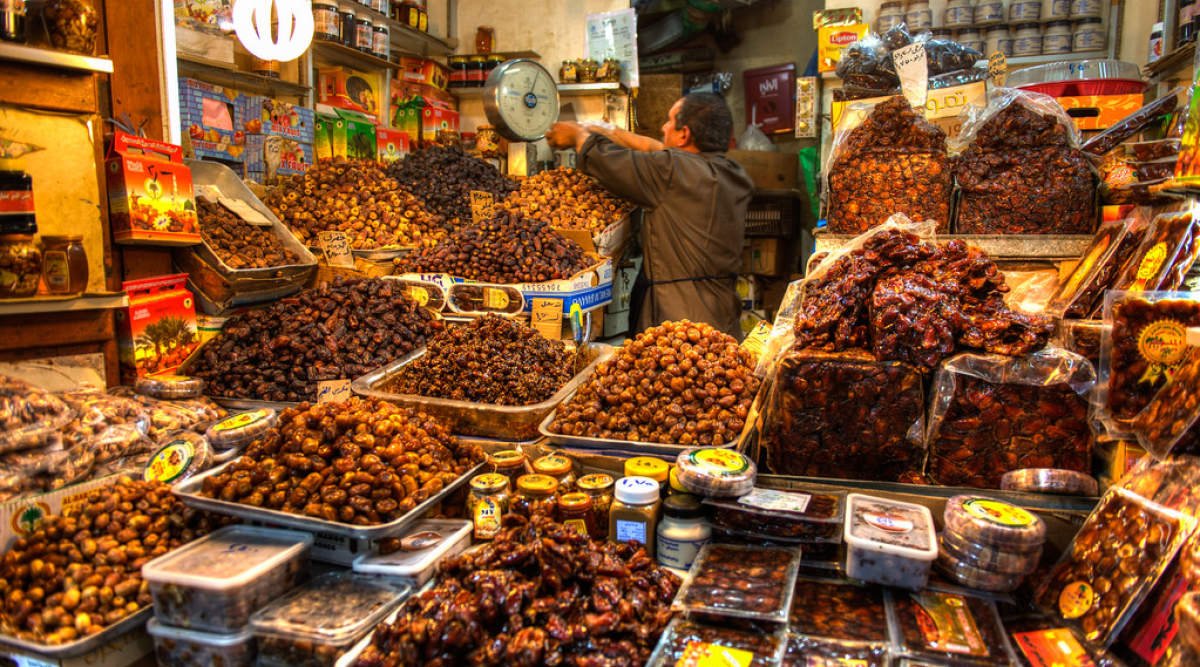
Freshness of Kurma Supplier: Displaying Art in Malaysia
The Importance of Freshness: A Delightful Date Experience
1. Introduction
Kurma Supplier in Malaysia offers a wide range of date varieties, each cherished for its unique flavor and texture. However, to truly appreciate the delightful experience of dates, maintaining their freshness is crucial. In this blog post, we will explore how wholesalers and retailers in Malaysia ensure the freshness of dates while they are displayed in the market, enhancing their appeal and quality for customers.
Strategies for Ensuring Freshness
2. Optimal Storage Conditions
a. Temperature and Humidity Control
Maintaining the ideal temperature and humidity levels is essential for preserving the freshness of dates. Wholesalers and retailers utilize specialized storage facilities or refrigeration units to create a controlled environment that helps extend the shelf life of the dates.
b. Protection from Light and Air
Exposure to light and air can accelerate the deterioration of dates. To safeguard against this, wholesalers and retailers store the dates in opaque containers or packaging that blocks out light and minimizes air exposure, preserving their freshness and taste.
3. Regular Quality Checks
a. Visual Inspection
Dates wholesalers and retailers conduct regular visual inspections of the dates on display to ensure their freshness. They look for signs of spoilage such as discoloration, mold, or unusual odors. Any dates that do not meet the quality standards are promptly removed and replaced.
b. Rotating Stock
To maintain freshness, wholesalers and retailers adopt a “first in, first out” (FIFO) approach. This means older stock is placed at the front of the display while newer stock is positioned behind. By rotating the stock, they ensure that dates are sold and consumed within their optimal freshness period.
4. Appealing Presentation
a. Visual Merchandising
Creating an attractive and visually appealing display is crucial for enticing customers and showcasing the freshness of the dates. Wholesalers and retailers arrange the dates neatly, paying attention to color coordination and using appealing packaging or decorative elements to enhance the presentation.
b. Product Information
Displaying accurate and detailed product information, such as the date variety, country of origin, and any certifications or quality assurances, helps build trust with customers. This transparency contributes to their confidence in the freshness and quality of the dates.
Determining the optimal freshness period for dates involves several factors that wholesalers and retailers take into consideration. Here are the key aspects they consider when determining the freshness period:
1. Date Variety: Different date varieties have varying shelf lives and optimal freshness periods. Wholesalers and retailers rely on industry knowledge and experience to understand the specific characteristics of each variety and determine how long they can maintain their freshness.
2. Harvesting and Processing: The freshness period of dates is influenced by how they are harvested and processed. Factors such as the timing of the harvest, handling practices, and post-harvest treatments can impact the shelf life of the dates. Wholesalers and retailers collaborate closely with date producers to obtain information about these processes.
3. Quality Standards and Regulations: Wholesalers and retailers adhere to quality standards and regulations established by relevant authorities. These guidelines may include specific criteria for freshness, appearance, and taste. Compliance with these standards helps determine the acceptable freshness period for dates.
4. Storage and Handling Conditions: The storage and handling conditions employed by wholesalers and retailers play a crucial role in determining the freshness period. Factors such as temperature, humidity levels, and exposure to light and air can either extend or shorten the shelf life of dates. By maintaining optimal storage conditions, they can maximize the freshness period.
5. Sensory Evaluation: Wholesalers and retailers often rely on sensory evaluation techniques to assess the quality and freshness of dates. Trained individuals use their senses of sight, smell, and taste to detect any signs of deterioration or loss of freshness. This evaluation helps determine the point at which dates are no longer considered fresh.
6. Consumer Expectations: Wholesalers and retailers also take into account consumer expectations and preferences. They consider factors such as the typical consumption habits of customers, market demand, and customer feedback to determine the freshness period that aligns with consumer expectations.
By considering these factors and a combination of industry knowledge, quality standards, sensory evaluation, and consumer expectations, wholesalers and retailers can determine the optimal freshness period for dates. It is important for them to strike a balance between ensuring the dates are fresh and maintaining a reasonable shelf life that allows for distribution and sale within the desired timeframe.
Key Highlights:
I. Kurma Supplier in Malaysia: Ensuring Freshness for Customer Satisfaction
A. Importance of freshness for a delightful date experience.
B. Strategies for ensuring freshness:
1. Optimal storage conditions (temperature, humidity, light, and air protection).
2. Regular quality checks (visual inspection and rotating stock).
3. Appealing presentation (visual merchandising and product information).
II. Determining the Optimal Freshness Period for Dates
A. Factors considered:
1. Date variety and its characteristics.
2. Harvesting and processing methods.
3. Quality standards and regulations.
4. Storage and handling conditions.
5. Sensory evaluation techniques.
6. Consumer expectations and preferences.
Merged Summary:
Ensuring the freshness of Kurma Supplier in Malaysia is vital for customer satisfaction. Wholesalers and retailers employ strategies like optimal storage conditions, regular quality checks, and appealing presentation to maintain freshness. They consider factors such as date variety, harvesting methods, quality standards, storage conditions, sensory evaluation, and consumer expectations when determining the optimal freshness period. By balancing these factors, businesses can deliver fresh dates that meet customer expectations and regulatory requirements.
Conclusion
Maintaining the freshness of dates is a top priority for wholesalers and retailers in Malaysia. Through optimal storage conditions, regular quality checks, and appealing presentation, they ensure that customers can enjoy Kurma Supplier at their best. By following these strategies, businesses not only enhance customer satisfaction but also foster long-term relationships and drive success in the competitive dates market.